I’ve been home for a week, now, and the experiences of the American tour swirl around the edges of my consciousness, like the after-traces of a powerful dream. As I settle back into the quietness of home life, there are moments of wondering: Did all that really happen?
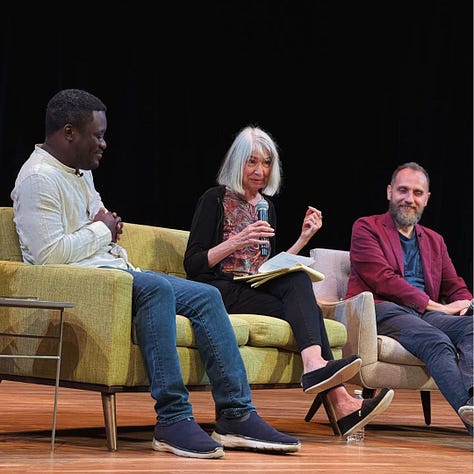
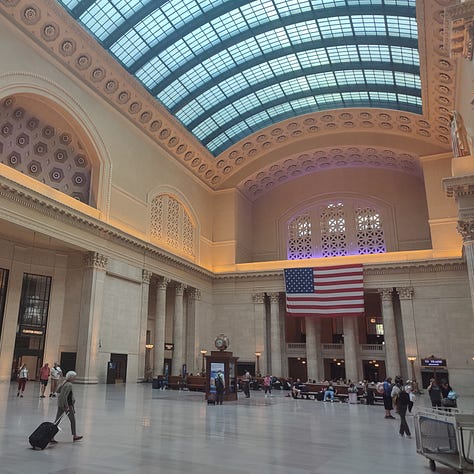
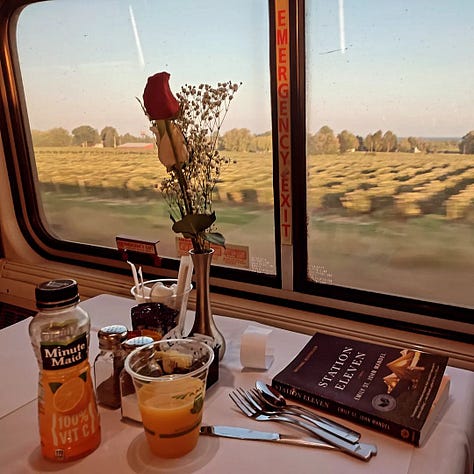
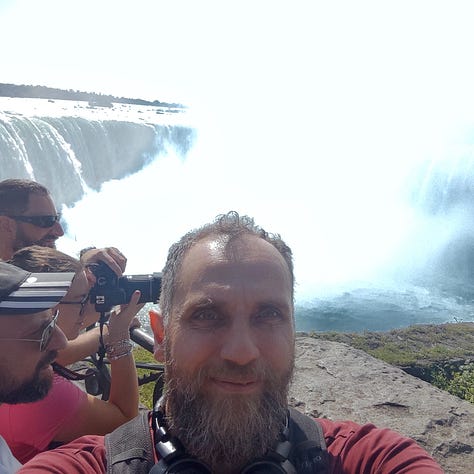
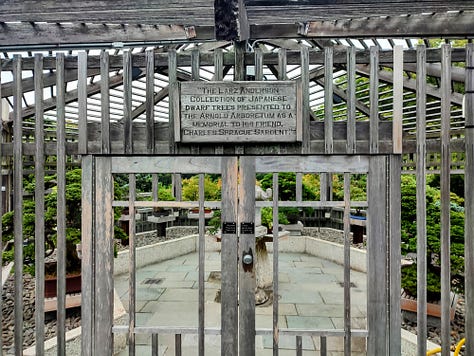
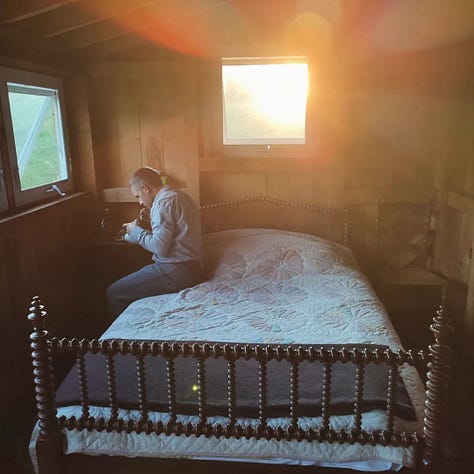
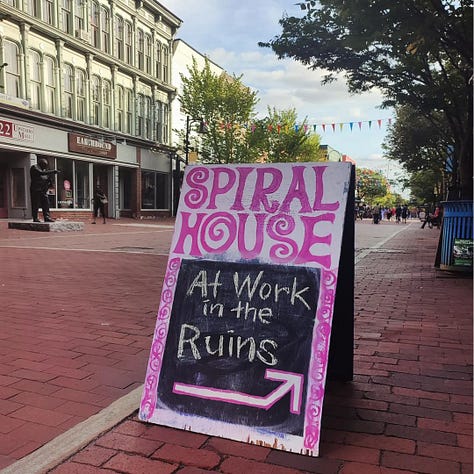
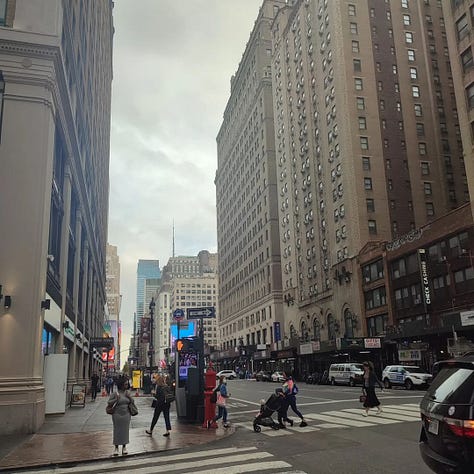
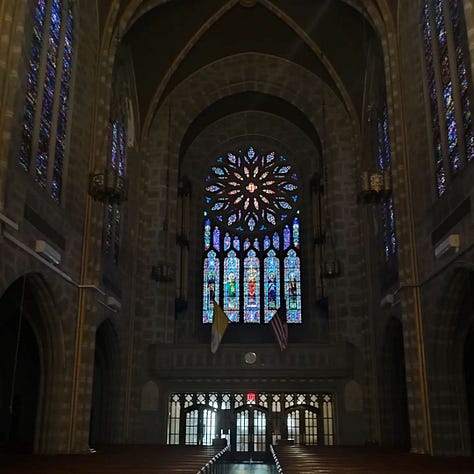
Somewhere in the early days of the tour, I sat down in a quiet moment in the Schumacher Library to record an invitation to another journey. Twice a year, we open the doors of the online extension of a school called HOME and invite all-comers to join us for five weeks, online, exploring the questions that are most alive in the conversations that Anna and I bring together around our kitchen table.
In early November, we’ll set out on this year’s autumn series, which we’re calling POCKETS, PATTERNS & PRACTICES. It feels as though it’s time to trace the shapes we’re noticing within the work of regrowing a living culture, the clues that we can pass around and share, the stories that are setting in motion small gatherings and pockets of hospitality and conviviality, and the scent of possibility for stitching together these pockets.
If that invitation is whispering to where you find yourself, in the second half of 2024, then lean in a little closer and read more on the school website.
One thing my American journey brought home to me is the richness of the relationships that some of us are weaving through our ways of using Substack. You may have gathered some of that from last week’s end-of-tour post, where I linked to
and ’s accounts of the parts of the tour on which they joined me.So I’m reminded that it’s been a while since I last wrote one of my occasional “meet the neighbours” posts, where I introduce the work of other writers here who feel like part of the neighbourhood of thinking and feeling and wording together that makes this corner of Substack feel like home to me. And, partly because homecoming has given me a chance to catch up on reading, it seems there’s an abundance of writing that I want to share with you this week.
I don’t think I’ve ever been more excited to welcome someone to Substack than I was when
’s first post dropped on Tuesday. I know that one of the places in my work where I leave some readers puzzled is when I speak about the importance – for me, at least – of staying with the trouble of our ancestral traditions, including those recent ancestors whose lives were shaped by the words and sounds and practices of churchgoing. If anything, it’s been harder to articulate what this means to me, given the high-profile conversions to Christianity of some of my good friends and longstanding collaborators.So there’s a personal relief in seeing Vanessa’s words out in the wider world at last, because I’ve been part of an ongoing conversation about “rewilding G-d” in the quieter spaces that she brings together, that goes back to her presence at the first residential course Anna and I held in the name of a school called HOME, back in 2018.
Vanessa opens this first post with a quote from the theologian Catherine Keller, with whom I had the chance to be in conversation during my visit to the Schumacher Centre, and this might set the tone of the work that she is doing:
It is not...that Christianity can stand here at its ancient gate, innocent of the aggressions of the West, ready to receive refugees from secular modernity. It may be the case, however, that we who repent the spectacular failure of Christendom to do justice, practice kindness or walk humbly with our God, are ready for new and stranger coalitions
A year ago, at the autumn equinox, my old friend and Dark Mountain co-conspirator
pitched her Red Tent here on Substack. It has been the kind of year that no one could ask for, and that comes to all of us in some form, sooner or later, at the centre of which was the sudden and unexpected death of Charlotte’s partner, Mark Watson. So her post this week is very far from an ordinary reflection on a year of writing.I saw
introducing it on Notes with words that ring true to me, when she wrote of Charlotte as one of “a handful of friends and elders” she has known “who spend a considerable amount of their life energy and apply their fierce intelligences on true practices of life … Some of these people work within established religious or philosophical traditions. Others, like Charlotte, are much needed go-betweens, opening overgrown pathways between head and heart, the sacred and the everyday, the past and the future.” Amen to that.’s writing is always fierce and beautiful, but her recent post Precariat Blues is something else, both beautiful and painful to read, because it asks those of us not currently living in this kind of precarity to keep our attention on something it would be easier and more comfortable and less true to look away from.Finally,
is a voice I came to know this summer, when she wrote about living in a moment that “needs your deep weirdness and your intellectual rigour”, words that rang true to me and many others. When I read her latest post, I was delighted – but not surprised – to find her drawing inspiration from Ivan Illich’s strangest and most fascinating book, In the Vineyard of the Text, to open our eyes to how much more powerful the technology of reading is than we generally allow within the frame of our post-Enlightenment ways of being.Between those pieces, I hope you find something that resonates. Have a good weekend – and I’ll be back soon to share some recordings from the American tour, including the film of my conversation with Catherine Keller and Bayo Akomolafe.
DH
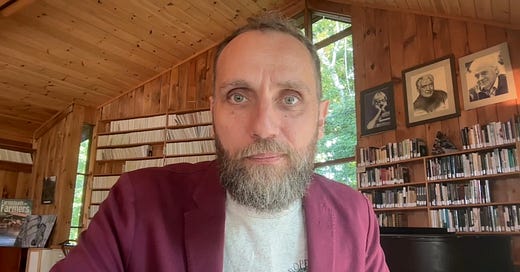







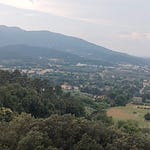


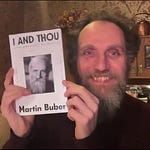




Share this post